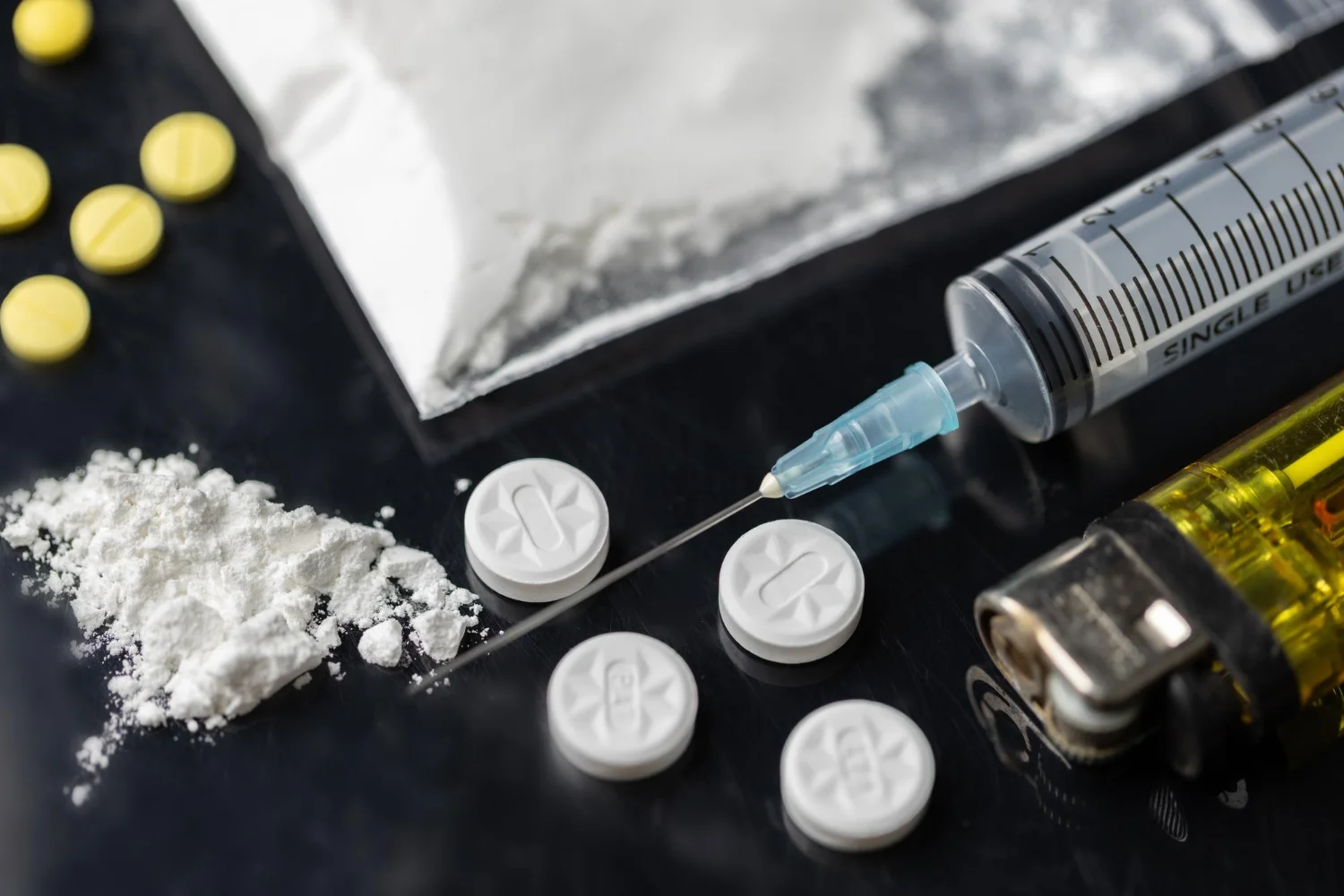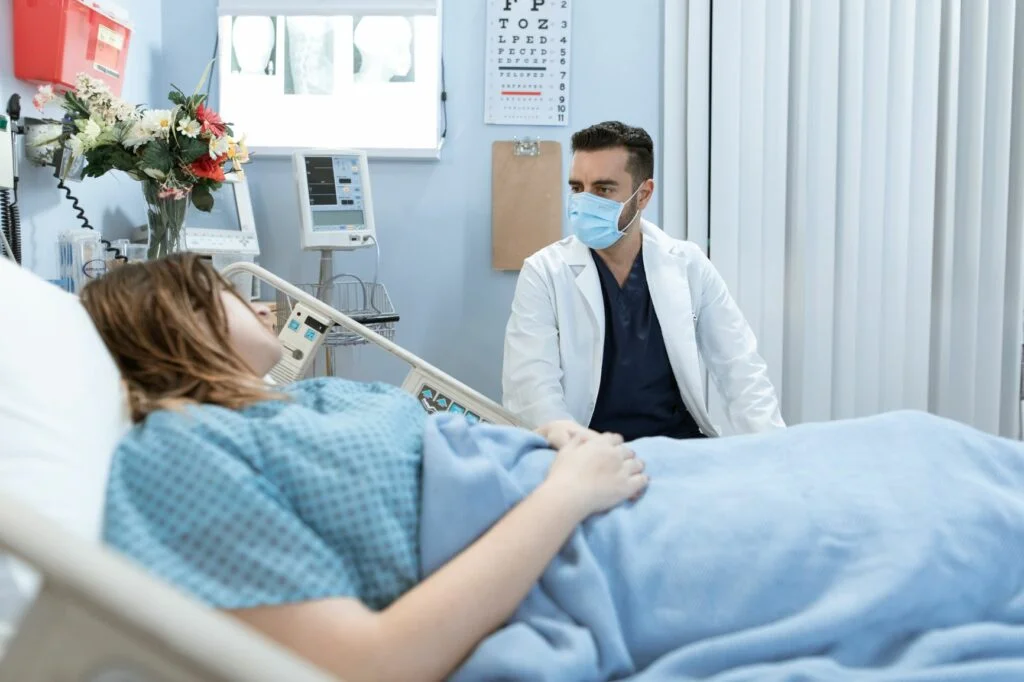What You Should Know About Detox Programs
The purpose of drug detox programs is to protect individuals from physical complications and sudden death by managing the process of withdrawal from harmful drug use effectively and safely. These options differ in how they function in detoxification under professional supervision, outpatient programs, and the holistic practice of medicine.

Detoxification is mainly for identifying the chemical impact on the human body rather than addressing the core of the addiction problem. While detox can alleviate the natural withdrawal symptoms that are elicited by drug use and provide the body with an effective exit from the drugs, treatment and support, have to come in handy to take care of the psychological and behavioral factors that continue to fuel addiction.
One of the first and most vital steps toward beginning a drug detox program is getting an expert's opinion from either a healthcare specialist or a drug dependency specialist. They might help evaluate your unique needs and provide the best treatment that matches them. Besides that, one should make sure that he/she does not overlook the possible dangers of detox, like the possibility of having withdrawal symptoms, which can cause many complications, and the chance of relapse. Assisted by medical professionals and support workers, detox programs can provide the start of the road to recovery and regaining full control of your life.
How Many Types of Detox Programs Are There?
There are several types of detox programs, each with its own approach and focus:
1. Medical Detoxification:
This is done by discontinuing the drugs with the help of medical attention, and it could be in an inpatient or outpatient clinic. Health professionals can perform some tasks, mainly the administration of the medications needed for the relief of withdrawal symptoms and for safer and more effective monitoring of the patient.
2. Inpatient Rehabilitation Programs:
These programs allow people to have a sanctuary house where they can rely on others in charge of taking care of them, providing support, and monitoring them all the time. Generally, treatment starts with detoxification and the first stage, after which psychotherapeutic and counseling interventions take place to resolve upstream problems. Through what can be considered an instance of long-term detox -inpatient or outpatient rehabilitation- the treatment sets in.
3. Outpatient Detox Programs:
Detoxification options are decided with orientation from a professional, then the person starts a program, visits the treatment center at a scheduled time, and then returns home. This happens for severe cases in a more extended phase of days to weeks, allowing the home system to fit back into where it started.
4. Holistic Detox Programs:
It is here that they concentrate on eradicating drugs from the body through organic means, which may include changes in the diet, supplements, massage, and exercise, as well as alternative therapies such as acupuncture.
5. Rapid Detoxification:
The principle of this method is that the body hydrates and eliminates undesirable substances from the addictive agents in the short term, sometimes with the support of anesthesia or sedation. The following goal of the program is a withdrawal process with a higher risk and is not for everyone.
6. Social Detox Programs:
These initiatives bring victims to detox-safe areas while also dealing with socio-economic issues that support substance abuse.
7. Self-Directed Detox:
Although this might have been effective for some, for others, especially with substances that make withdrawal symptoms worse, it could be riskier, even putting them in danger of life-threatening conditions.
Every type of detoxing program put forward has its strengths and weaknesses, and the fittest, for the most part, is the one that is equally disputed by the amount of the addiction, medical history, and personal preferences.
Here is a summary of these programs:
|
Type of Detox Program |
Description |
Suitable Candidates |
|
Medical Detoxification |
Observation under medical supervision, also in an in-patient ward, for a detox from drugs or alcohol. MAT often could be employed to treat withdrawal symptoms. |
People who have a dire addiction severely take drugs, or those who have a fatal outcome due to their pattern of abuse. |
|
Inpatient Rehabilitation |
There will be 24-hour caregiving and support in a structured and supervised environment. Detoxification is followed by therapy and counseling at an inpatient or outpatient facility. |
Individuals who need extensive treatment for severe addiction and those who require a controlled environment to sober up and prevent relapse. |
|
Outpatient Detox |
Accommodating a schedule when living at home for coming in for detox, medication, therapy, etc., at the treatment center. The most suitable option for palliative care in such cases. |
Patients with people who are mostly in good condition, have lighter addictions, or are unable to attend inpatient therapy. |
|
Holistic Detox |
Emphasize using nature's healing tools, such as diet, vitamins and supplements, regular exercise, and alternative medicine, such as acupuncture, yoga, and massages. |
People are looking to try this alternative to detox or are interested in holistic wellness. |
|
Rapid Detoxification |
Often, do a fast detox in a shorter period. It can entail more risks and not fit everyone. |
Patients searching for a quick withdrawal under a doctor's supervision and who are medically qualified for this. |
|
Social Detox Programs |
It brings a haven for withdrawal while attending to social as well as environmental issues that are identified as the reason behind abuse and dependency on substances. |
People who look for social aid and guidance in coping with the causes of addiction. |
|
Self-Directed Detox |
Trying to withdraw without qualified supervision or a medical guide is not recommended. It is not safe, primarily when it is related to substances able to cause an outcome so severe as pronounced withdrawal symptoms. |
People with a mild level of addiction and easy access to support in case of any bad outcome. |
Are Detox Programs Based on The Drug Abused?
Different types of drugs require tailored detox approaches:
Alcohol:
Most commonly, these types of interventions entail medical supervision because of the potential for patients to experience critical withdrawal symptoms. Overmedication and therapy are used primarily.
Opioids:
These are treated with programs that reduce symptoms and can even ease withdrawal using options such as methadone and buprenorphine. Medically-supervised withdrawal in different setups is the form of treatment.
Benzodiazepines:
This is influenced by the magnitude and duration of drug use, as well as the type of drug involved -extended-release or not-. Moreover, while most users will experience some withdrawal symptoms after detoxification, these can be mitigated through tapered reduction under professional supervision to avoid life-threatening withdrawal complications. The therapist is the core element of facing the masks under the masks.
Stimulants:
Give attention to coping with state symptoms like tiredness and desires. Sometimes, complementary therapy is used to treat the symptoms or side effects associated with the treatment.
Marijuana:
If there are some symptoms present, such as anxiety or an inability to sleep, we usually use supportive treatment and counseling.
A detox program must be tailored to specific drug habits and a patient's requests. Within this process, counseling with medical practitioners is critical to detoxify safely and effectively.
How is Life After Detox?
The recovery process following detox implies a period of transformation taking place within the body after getting rid of the alcohol and the mind getting used to being sober. Continuous therapy and patient support meetings further combat the hidden issues and prevent a recurrence of the addiction.
Rebuilding compounded relationships, having routines, and dealing with co-existing issues are necessary for long-term recovery. Finding purpose and persistent self-development are the fundamental conditions of people's lives after detox.
How to Find the Right Detox Program for Me?
The choice of a detox center is not an easy task, and it requires several steps to be taken. Firstly, assess yourself and identify issues as crucial as addiction type varying in severity and any additional medical or mental health problems alongside the preferred option of treatment. Last, content yourself with finding research-based detox centers that provide services that target your needs.
Consider speaking to healthcare providers or specialists to get help in the process of selecting a program. They will be able to perform a self-assessment and suggest suitable stopgaps. Moreover, verify whether your insurance health plans are accommodating or not to detox programs. Besides, most insurance plans will also provide coverage for substance abuse treatment, which may include detox services. Knowing what your coverage means can translate into selecting the right plan and not letting money or finances be problematic.
Consider the location, amenities, and reviews from the patients who have used the service beforehand. In our Treatment Center Finder, you can locate a center that meets your criteria and provides the guidance needed for the completion of the respective program so that you can fulfill your recovery process.








